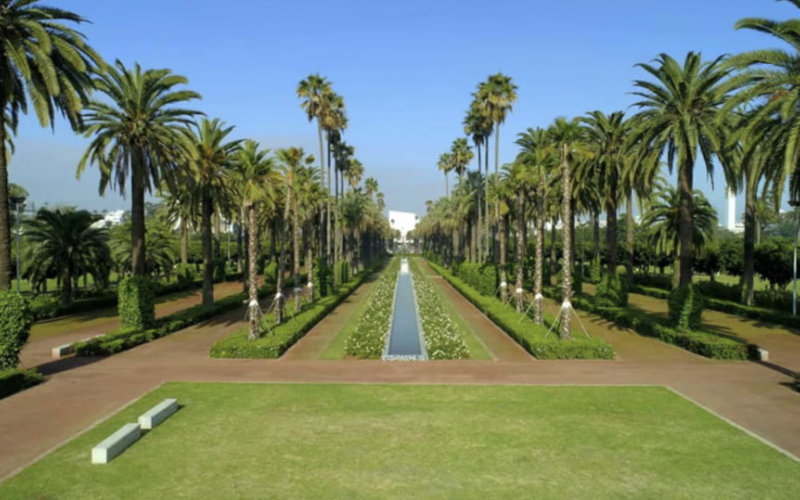Casablanca’s Green Revolution: Recycled Wastewater Transforms City Landscape

The authorities of Casablanca are carrying out a vast campaign to strengthen green spaces within the city. It consists of planting and greening the highways and main roads, and watering these spaces with treated wastewater provided by the Médiouna and Aïn Diab treatment plants.
This campaign, which will change the face of the economic capital of the kingdom, "is not part of a temporary project, but represents an integrated strategic vision aimed at revaluing the environmental space of the city, improving air quality, and strengthening the aesthetics of streets and urban areas," indicate sources, specifying that "thanks to the infrastructure developed in the field of wastewater treatment, the municipality of Casablanca is now able to supply these areas to be greened with sufficient quantities of water unfit for consumption, but suitable for irrigation, which constitutes an ecological and economic solution."
"The campaign extends to the areas along the urban highways, as well as the major boulevards connecting the main neighborhoods, thus offering the opportunity to expand the green area in the public space, after years of drought and water pressure that have affected the maintenance of gardens and green spaces," develop the same sources. "Casablanca is moving towards a new phase of ecological transition thanks to the strategic extension of the use of treated wastewater," rejoices Mohamed Joudar, deputy mayor of Casablanca in charge of green spaces. In a statement to Al3omk, he outlined the main lines of an ambitious plan to establish a "green revolution" in the economic capital, with the watering of gardens and green spaces with treated wastewater.
The Médiouna wastewater treatment plant has already started pumping 3,500 cubic meters per day of treated water for the irrigation of green spaces, said Joudar, specifying that the target is to gradually reach 7,800 cubic meters per day in the medium term. As for the Aïn Diab plant, it will also provide 3,500 cubic meters per day, mainly to cover the needs of the green spaces in the urban perimeter, continued the deputy mayor, stressing that this initiative is taking place in a context of severe drought. "We were facing a real challenge to preserve the green spaces without affecting the drinking water reserves, which made the option of treated water an essential strategic solution."
In partnership with several public institutions and local stakeholders, the municipality has launched an integrated plan to rehabilitate the irrigation system in the city, including the development of networks, the modernization of infrastructure and the connection of many gardens and facilities to the new distribution systems of treated water, Joudar also indicated, before affirming: "We aspire for Casablanca to become a national model in the adoption of smart environmental solutions, and for it to transform into an ecologically prosperous city, where nature receives the same attention as infrastructure and urban planning."
Related Articles
-

Moroccan Expats: New Tax Guide Unveils Secret Weapon for Secure Property Sales
28 July 2025
-

Morocco’s Crown Prince Leads Royal Procession to Tétouan for Throne Day Preparations
28 July 2025
-

Economic Squeeze Drives Moroccan Diaspora Away: Summer Tourism Takes Unexpected Hit
28 July 2025
-

Morocco’s Hidden Tax Rule: MREs Face Surprise Charges on ’Free’ Family Rentals
27 July 2025
-

Morocco’s Press Freedom Crisis: Rights Group Urges Royal Pardon for Political Detainees
27 July 2025